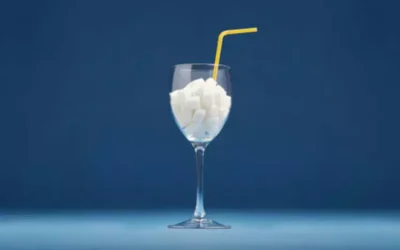Finally, it is important to note that, in certain cases, a person could experience life threatening symptoms due to alcohol withdrawal. According to Recovery Worldwide, alcohol withdrawal occurs when a person stops drinking following heavy and prolonged use. Severe and complicated alcohol withdrawal requires treatment in a hospital — sometimes in the ICU. While receiving treatment, healthcare providers will want to monitor you continuously to make sure you don’t develop life-threatening complications. The length of time alcohol stays in the body will depend on factors such as individual features, how much a person has drunk, and how fast. In urine, alcohol can be detected from 12 to 130 hours if a person has been drinking excessively.
The Effects of Alcohol on Skin and How to Manage Them – Vogue
The Effects of Alcohol on Skin and How to Manage Them.
Posted: Wed, 29 Nov 2023 08:00:00 GMT [source]
How Do You Know When You’re Drunk?
Some people of East Asian descent lack the enzymes necessary to break down alcohol. This can cause a reaction that includes facial flushing, nausea, dizziness, rapid heart rate, and headache. Though not true for everyone, alcohol tends to stay in a woman’s system for longer than a man’s. This is because women tend to have a higher percentage of body fat and a lower percentage of body water than men. There are many factors that can affect how alcohol is processed by the body.
Alcohol Withdrawal: How to Get Through It
For those who’ve decided it’s time to quit, there are rising numbers of Britons making that same decision. In 2023, 30 per cent of men and 26 per cent of women surveyed said they wanted to reduce the amount of alcohol they drink this year according to research by Alcohol Change UK. In some cases, alternative tests — such as a breath, hair, or blood test — may be more appropriate and valuable. Alcohol can remain in the breast milk for as long as it remains in the blood. As alcohol leaves the blood, it also leaves the milk, making it unnecessary to “pump and dump” breast milk after drinking alcohol.
Alcohol withdrawal timeline
- If you snore loudly and feel tired even after a full night’s sleep, you might have sleep apnea.
- There’s no miracle diet by any means, but the Mediterranean diet, for example, can help fill some of the nutritional gaps you may have due to alcohol use.
- Simply put, those with alcohol use disorder often obsess about when their next drink is, while those without it don’t drink more than they intend to nor anticipate their next drink.
- Other methods — breath, hair, and blood tests — can detect recent alcohol consumption.
Alcohol can be detected in sweat, urine and the breath for at least as long as the liver is breaking down alcohol. Alcoholic beverages such as beer, wine and liquor break down differently in each person’s body. The substance is absorbed into the bloodstream through the stomach and the walls of the small intestines, affecting the kidneys, bladder, liver, lungs and skin.
How long can tests detect alcohol in the body?
Also, ignore the myth that your body recognizes different liquors differently. Your liver doesn’t register a glass of wine any differently from a mixed cocktail—it only processes alcohol. If one drink has a higher ABV than the other, your liver will have to work harder. Trace amounts of alcohol can be detected in a saliva swab around hours after the last drink. Frequently checked as part of routine breathalyzer testing, alcohol can be detected in the breath for up to 24 hours after the last drink. For example, someone who has a BAC Of 0.08, which is when it becomes illegal to drive, will take around 5.5 hours to flush the alcohol out of their body.
- Alcohol can be metabolized faster when you have eaten prior to drinking.
- If don’t have much of an appetite, you may want to take a multivitamin or drink a beverage high in electrolytes, such as a sports drink.
- The occasional hangover may just be the reminder you need to be more mindful of drinking moderately next time.
- To ensure you are drinking in moderation, check the strength or percentage of pure alcohol in your drink.
- Our curiosity about alcohol often begins long before our first drink.
But severe or complicated alcohol withdrawal can result in lengthy hospital stays and even time in the intensive care unit (ICU). If you are concerned about potential alcohol withdrawal symptoms, talk to your doctor. A doctor can evaluate your overall health and alcohol abuse history to help you determine how likely it is that you’ll experience how to get alcohol out of your system symptoms. Many people stop experiencing alcohol withdrawal symptoms four to five days after their last drink. That’s why many of us wonder if a month of avoiding drinking is enough to “reset” your liver back to normal. But a full detox is needed for the most benefit, and how much time that takes depends on a variety of personal factors.
What affects the rate that alcohol is processed?
On the flip side, the same study showed that drinking a ton of water before a test can drastically dilute the amount of alcohol that shows up. After you stop drinking, booze stays in your bloodstream for up to 6 hours. But it can linger on your breath, in your saliva, or pee anywhere from 12 to 24 hours. Weirdly, it can be detected on your hair for up to 90 days (the more you know 💫). Most people with mild to moderate alcohol withdrawal don’t need treatment in a hospital.

How Is Alcohol Detected in a Urine Test?
Blood flow may be slower, and an older person may be more likely to be taking medication that affects the liver. Our recovery programs are based on decades of research to deliver treatment that really works. As mentioned above, it is not advisable to do the withdrawal process on your own. You can, however, take tips and suggestions on how you can make the experience a little easier.

